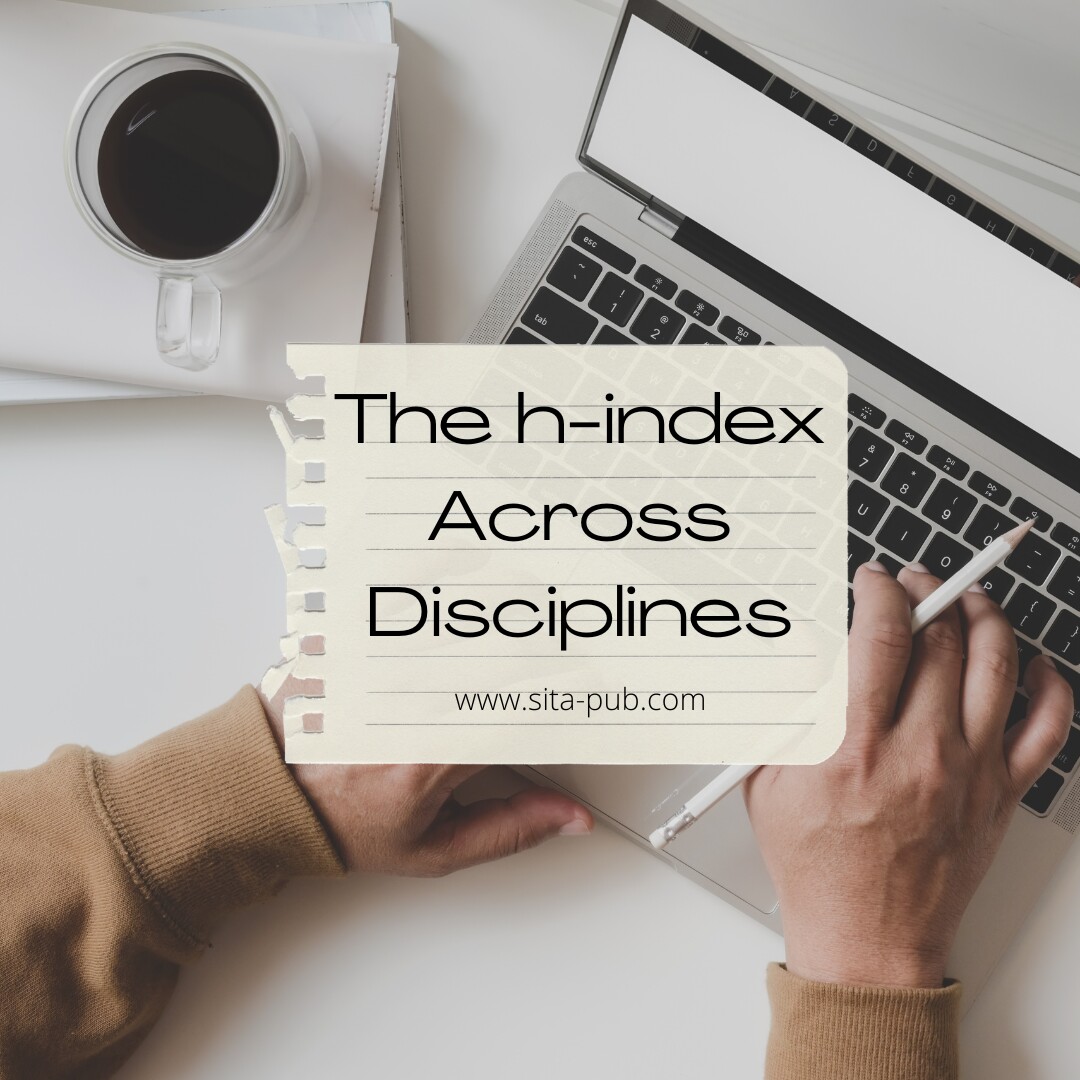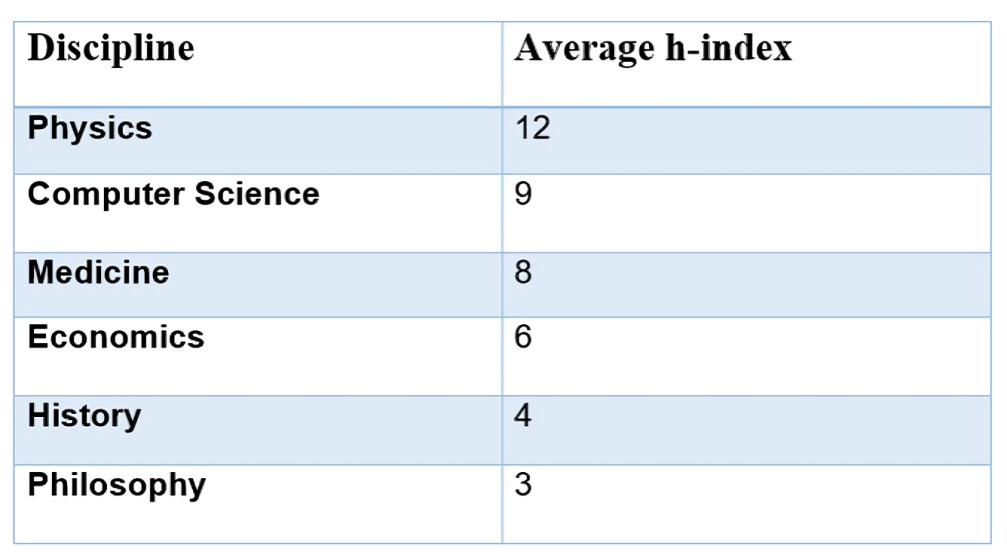The h-index Across Disciplines


The h-index is largely determined by the underlying publication culture, which significantly varies across different fields of study. For example, in physics, mathematics, and computer science, articles are usually produced individually; however, other fields like history or philosophy often involve several authors contributing to one work. In these latter cases, low publishing rates can be an indicator of valuing quality over quantity with each work.
The different publishing practices impact the h-index scores: the metric is directly tied to the number of publications that a person has made. It means that individuals in areas with high publication numbers may have higher h-index values — not because their work is more influential, but simply due to the nature of their discipline publishing culture.

Citation patterns, as publishing norms, can vary greatly between academic subjects. Some disciplines, such as natural sciences and engineering, have greater overall citation rates, with researchers often citing the work of their colleagues. On the other side, subjects such as the social sciences and humanities frequently have lower citation density, possibly because experts are less likely to cite the work of other researchers.
These uneven citation practices might affect the interpretation of the h-index, which is significantly influenced by the amount of citations a researcher's publications receive. Scholars in high-citation fields might accumulate h-index scores that appear inflated when compared to academics in disciplines with lower citation rates, even if the latter group has produced work of equal or greater significance.

The level of collaboration within an academic discipline also influences the h-index. In subjects where single-authored publications are the norm, such as the humanities, the h-index may underestimate the actual influence of an individual's work because it does not take into account co-authors' contributions. In contrast, in domains such as science, where multi-authored papers are common, the h-index may overestimate an individual's contribution to the research.

As demonstrated in the table above, average h-index values vary considerably across academic subjects, reflecting the distinct publication and citation patterns that distinguish different disciplines.

When assessing the research impact of scholars, it is critical to examine the h-index in the appropriate disciplinary context. Simply comparing raw h-index scores between researchers in completely different domains can result in misleading and biased conclusions. Instead, it is critical to compare individuals to their peers in the same or related fields, taking into account the distinct publication and citation practices that create the h-index in that field.
Furthermore, institutions and decision-makers should be aware of the h-index's limits and use it in conjunction with other indicators when evaluating research performance. A more comprehensive evaluation technique, which takes into account aspects such as the quality and impact of individual publications, research funding, and other specialized indicators, can provide a more balanced and comprehensive view of a scholar's accomplishments.
By recognizing the disciplinary variations that influence the h-index, we may assure a more impartial and accurate evaluation of research outputs, eventually promoting knowledge and creativity across all academic domains.

SITA's citation booster services can help. Our expert team specializes in developing targeted strategies to grow your citations and h-index within your field. We analyze your publication history and leverage our extensive industry connections to identify high-impact venues for promoting your work. Partner with SITA and watch your scholarly impact skyrocket. Contact us today to learn more about our customized citation-boosting packages.
If you have any questions, inquiries, or would like to learn more about our services, please don't hesitate to reach out to us. Our dedicated team is ready to assist you.